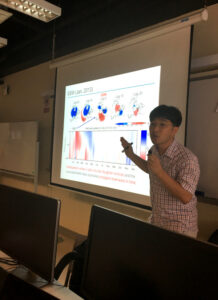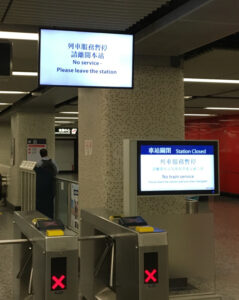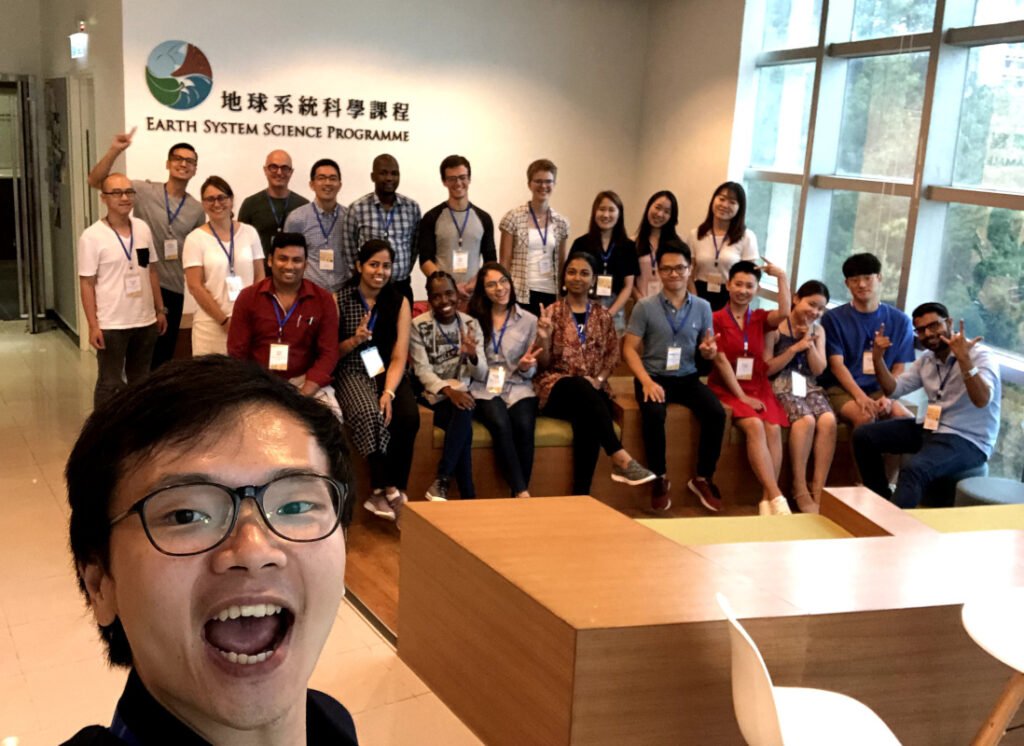The Chemistry-Climate Model Initiative (CCMI) Summer School ‘Earth System Modelling and Observations to Study Earth in a Changing Climate’
4 – 6 August 2019
The IGAC/SPARC Chemistry Climate Model Initiative (CCMI) summer school ‘Earth System Modelling and Observations to Study Earth in a Changing Climate’
From the 4th to the 6th of August 2019, 16 early career scientists from eight different countries (across four continents) gathered on the Chinese University of Hong Kong (CUHK) campus to improve their understanding of the representation of atmospheric chemistry and atmosphere-biosphere interactions in Earth System Models.
 The course was a mixture of lectures, covering a broad range of topics relevant to the field of chemistry-climate interactions, and practical exercises. Lectures focused on the representation of physical and chemical processes in numerical models (David Plummer), an introduction to the chemistry and circulation of the stratosphere (Michaela Hegglin), the chemistry and associated processes controlling tropospheric composition (Tatsuya Nagashima), as well as chemistry-climate and stratosphere-troposphere dynamical coupling (Seok-Woo Son) and approaches to modelling the role of the biosphere in the Earth System (Amos Tai). Practical exercises had the participants playing with simple one-dimensional advection codes to explore the limitations of solving differential equations discretized in space and time and investigating the complexities of comparing model output from the CCMI phase 1 data archive with station data from the Tropospheric Ozone Assessment Report (TOAR) ozone database. A highlight of the practical exercises was the chance to work with the Terrestrial Ecosystem Model in R (TEMIR) developed by Prof. Tai’s group at CUHK to simulate the response of a forest canopy to increasing concentrations of CO2 and to
The course was a mixture of lectures, covering a broad range of topics relevant to the field of chemistry-climate interactions, and practical exercises. Lectures focused on the representation of physical and chemical processes in numerical models (David Plummer), an introduction to the chemistry and circulation of the stratosphere (Michaela Hegglin), the chemistry and associated processes controlling tropospheric composition (Tatsuya Nagashima), as well as chemistry-climate and stratosphere-troposphere dynamical coupling (Seok-Woo Son) and approaches to modelling the role of the biosphere in the Earth System (Amos Tai). Practical exercises had the participants playing with simple one-dimensional advection codes to explore the limitations of solving differential equations discretized in space and time and investigating the complexities of comparing model output from the CCMI phase 1 data archive with station data from the Tropospheric Ozone Assessment Report (TOAR) ozone database. A highlight of the practical exercises was the chance to work with the Terrestrial Ecosystem Model in R (TEMIR) developed by Prof. Tai’s group at CUHK to simulate the response of a forest canopy to increasing concentrations of CO2 and to  investigate how this modifies the relationship between evapotranspiration and photosynthesis.
investigate how this modifies the relationship between evapotranspiration and photosynthesis.
While the turbulent political situation in Hong Kong made for an interesting backdrop to the summer school, and a general strike on the second day meant a very late start for everyone, participants were enthusiastic about the opportunity to be exposed to a broad variety of topics in chemistry-climate interactions and the chance to meet colleagues from around the world.
The organisers would like to express their deep gratitude to Future Earth’s IGAC and WCRP/SPARC for sponsoring the summer school, as well as to the Institute of Environment, Energy and Sustainability at CUHK for providing additional generous funding. The event was followed by the 2019 IGAC/SPARC CCMI Science Workshop, which provided the early career scientists with a great opportunity to get a taste of the most recent development in the research field of chemistry-climate interactions and to discuss their own research with researchers around the world.

